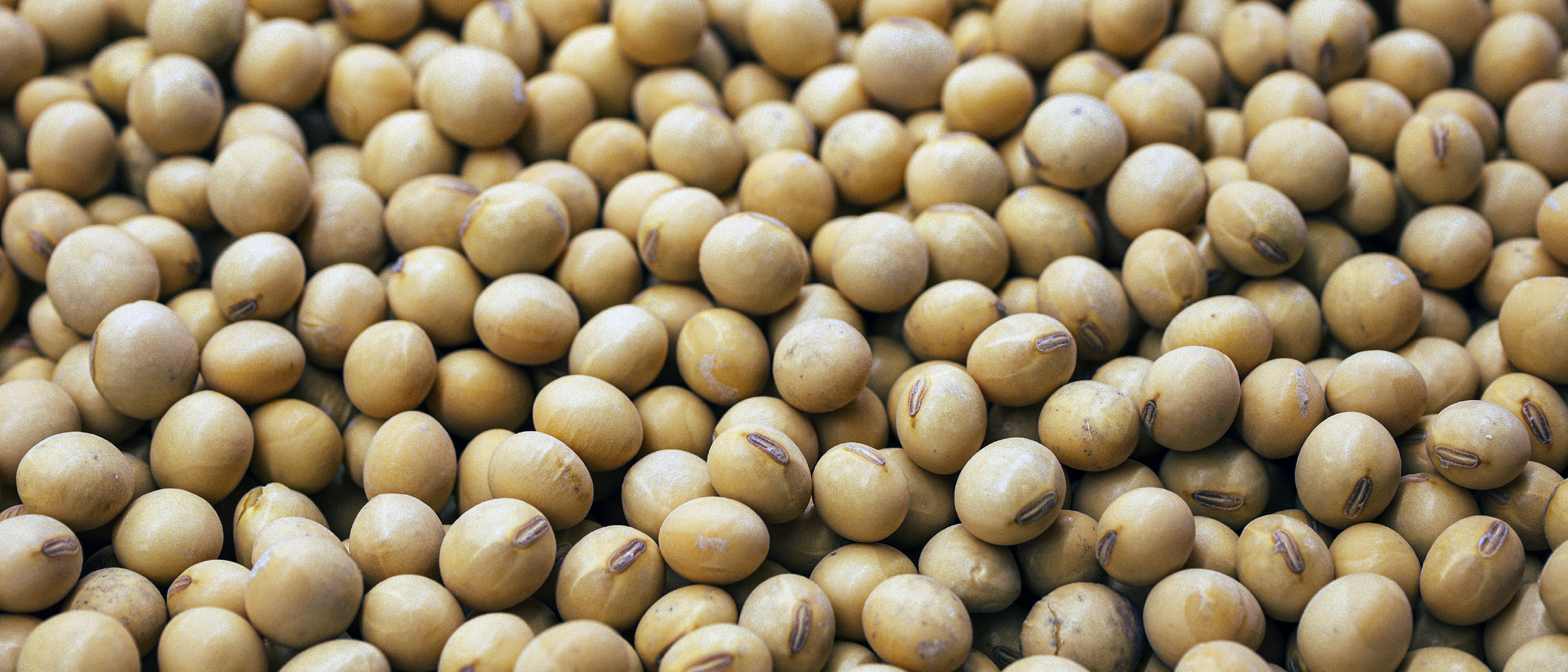What Happens to Your Body When You Eat Soy Every Day
Posted on June 22, 2025 • 4 min read • 690 wordsExplore the daily impact of soy consumption on your body, from breast health and metabolic function to menopausal symptom relief, based on recent academic research.

Soy, a staple in plant-based diets for centuries, has surged in popularity globally due to its rich protein content and potential health benefits. But what exactly happens when you incorporate soy into your daily meals? From hormonal balance to metabolic health, recent studies reveal a nuanced picture of how this legume interacts with your body. Let’s dive into the science behind your daily soy habit.
1. Soy and Breast Health: Reducing Recurrence Risks for Survivors
For individuals with a history of breast cancer, daily soy consumption may offer protective benefits. A 2024 systematic review and meta-analysis involving 32 observational studies found that soy isoflavones—compounds with weak estrogenic activity—were associated with a 26% reduced risk of breast cancer recurrence, particularly among postmenopausal women and those with estrogen receptor-positive (ER+) tumors [1] . The greatest risk reduction occurred at an intake of 60 mg/day of isoflavones, suggesting a dose-dependent benefit. This aligns with earlier research highlighting soy’s role in modulating estrogen receptors without overstimulating them, a key factor in preventing cancer progression.
2. Metabolic and Cardiovascular Benefits: A Plant-Based Edge Over Dairy
Swapping cow’s milk for soymilk daily could positively impact your heart and metabolism. A 2024 meta-analysis of 17 randomized controlled trials (RCTs) compared the effects of substituting 500 mL of cow’s milk with soymilk over 3+ weeks [2] . Results showed moderate reductions in non-HDL cholesterol (-0.26 mmol/L) and blood pressure (systolic: -8 mmHg; diastolic: -4.74 mmHg), along with lower C-reactive protein (CRP), a marker of inflammation. These benefits held even for sweetened soymilk, challenging the notion that ultra-processed plant-based alternatives harm cardiometabolic health.
3. Easing Menopausal Symptoms: Phytoestrogens at Work
For women navigating menopause, soy’s phytoestrogens—plant compounds that mimic estrogen—may alleviate hot flashes and other vasomotor symptoms. A 2023 systematic review noted that dietary interventions with soy (e.g., tofu, soy milk) were linked to reduced severity of menopausal symptoms, particularly in populations with higher baseline soy intake [3] . While results vary by individual estrogen levels, consistent daily intake (equivalent to 2-3 servings of soy foods) appears most effective.
4. Muscle Health: Soy Protein as a Reliable Alternative to Animal Protein
Concerned about meeting protein needs on a plant-based diet? Research shows soy protein holds its own against animal sources for muscle health. A 2018 meta-analysis of nine RCTs comparing soy protein with whey, beef, or dairy protein found no significant differences in muscle mass or strength gains among resistance-trained individuals [4] . With 3.1 grams of protein per 100 grams, daily soy consumption (e.g., 200g tofu) provides ~6g protein, contributing to the recommended 50-60g daily intake for adults.
5. Thyroid Function: No Significant Adverse Effects
A common concern is whether soy disrupts thyroid function, but evidence suggests otherwise. A 2019 meta-analysis of 18 RCTs found no significant changes in thyroid hormone levels (free T3, free T4, TSH) among soy consumers, even at high intakes [5] . This holds for individuals with normal thyroid function; those with iodine deficiency or autoimmune thyroid disease should consult a healthcare provider, as soy may interfere with iodine absorption in rare cases.
Soy Nutrition: A Breakdown of Key Nutrients
Including soy in your daily diet also means tapping into its nutrient profile. Here’s a snapshot of key nutrients per 100g of soy (raw, mature seeds) and their daily recommended intakes (DRIs) for adults:
| Nutrient | Amount per 100g | Daily Recommended Intake (Adults) |
|---|---|---|
| Protein | 36.5g | 50-60g (varies by activity level) |
| Dietary Fiber | 9.3g | 25-30g |
| Calcium | 277mg | 1000-1200mg |
| Iron | 8.2mg | 8mg (men)/18mg (women) |
| Isoflavones | 1.2-3.5mg | No official DRI, but 50-100mg/day linked to benefits |
Note: Values are approximate and may vary by soy product (e.g., tofu vs. edamame).
Conclusion: Soy as a Versatile, Health-Enhancing Addition to Your Diet
Daily soy consumption offers a range of benefits, from supporting breast health and easing menopause to improving metabolic and cardiovascular markers. Its protein quality rivals animal sources, making it a cornerstone of plant-based diets. While individual responses may vary—particularly for those with specific health conditions—current evidence strongly supports soy as a safe, nutrient-dense food. So go ahead: enjoy that soy latte, stir-fry with tofu, or snack on edamame—your body will thank you.
Sources
-
van Die, M Diana. Phytonutrients and outcomes following breast cancer: a systematic review and meta-analysis of observational studies. JNCI Cancer Spectrum.(2024). doi:10.1093/jncics/pkad104 ↩︎
-
Erlich, M N. A systematic review and meta-analysis of randomized trials of substituting soymilk for cow's milk and intermediate cardiometabolic outcomes. BMC Medicine 22:352.(2024). doi:10.1186/s12916-024-03524-7 ↩︎
-
Aarshageetha, P. Role of Alternate Therapies to Improve the Quality of Life in Menopausal Women: A Systematic Review. Journal of Menopausal Health 9:121-128.(2023). doi:10.4103/jmh.jmh_222_22 ↩︎
-
Messina, Mark. No Difference Between the Effects of Supplementing With Soy Protein Versus Animal Protein on Gains in Muscle Mass and Strength in Response to Resistance Exercise. International Journal of Sport Nutrition and Exercise Metabolism 28:342-350.(2018). doi:10.1123/ijsnem.2018-0071 ↩︎
-
Otun, Jemiliat. Systematic Review and Meta-analysis on the Effect of Soy on Thyroid Function. Scientific Reports 9:4183.(2019). doi:10.1038/s41598-019-40647-x ↩︎